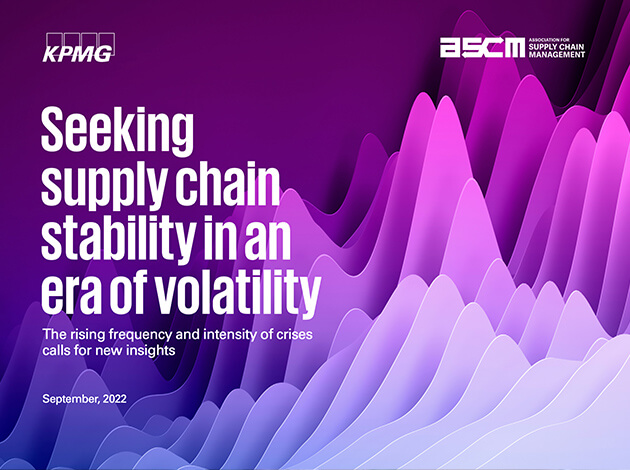SEPTEMBER 2022 - REPORT
The rising frequency and intensity of crises calls for new insights

In the new norm where volatility is more pervasive, impacts to global supply networks become nearly unavoidable.x

viii Reports of forced labor are driving brands to abandon Chinese cotton, Fortune, Jul 2021
ix What Does Russia’s Invasion of Ukraine Mean for the U.S. Economy? The New York Times, Feb 2022
x Uyghur Forced Labor Prevention Act, 22 U.S.C. §6901 (2021)
Transportation behavior has evolved in this new norm of volatility, both in terms of domestic and international freight. It has changed the way it influences the supply chain and how it is impacted in return.
Transportation behavior has evolved in this new norm of volatility, both in terms of domestic and international freight. It has changed the way it influences the supply chain and how it is impacted in return.
Prior to 2020, carrier rates for truckloads and unfilled orders from customers sat somewhat independent of each other. Both were measures of logistics performance and indirectly related with a low coefficient of determination (correlation) of 0.45. But since then, a more direct relationship has emerged where the correlation has increased to 0.92. This represents a 104 percent increase in ability for freight price to drive service level performance.

Rates for deep sea transportation are now moving in lock step with raw material price variation. Since 2020, the correlation between the two prices has risen by 151 percent. As prices for processed goods increase, rates for container ships follow a proportional path.
As the economy expands and demand for goods exceeds commodity and raw material supply, shipping prices increase to help manage demand for cargo space, and to cover costs from unprofitable periods when prices fall.xi The relationship between raw material and ocean freight has become much more pronounced due to the effects of market volatility.

xi Why Shipping Prices Have Recently Increased, CATO Institute, Nov 2021
©2022 KPMG LLP, a Delaware limited liability partnership and a member firm of the KPMG global organization of independent member firms affiliated with KPMG International Limited, a private English company limited by guarantee. All rights reserved.